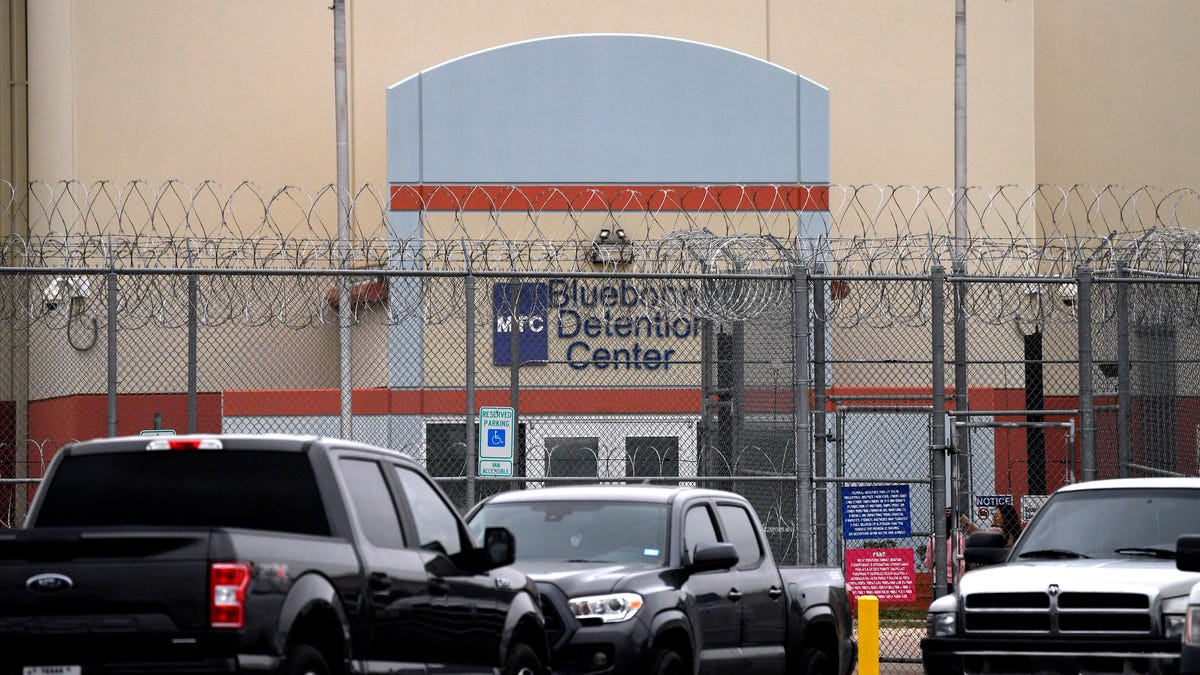Venezuelan migrants are asking the Supreme Court to provide more guidance about how they can fight deportation under the Alien Enemies Act.
US Supreme Court temporarily halts deportations of Venezuelan migrants
The U.S. Supreme Court paused President Donald Trump’s administration from deporting Venezuelan men in immigration custody.
WASHINGTON – Lawyers for Venezuelan immigrants threatened with being deported filed an emergency request asking the Supreme Court to continue blocking the removals and provide guidance about how they can fight their removal.
The lawyers from the American Civil Liberties Union acknowledged in the filing April 21 they were making “an extraordinary request.” But they said the emergency filing was justified because the administration flew hundreds of alleged gang members to a notorious prison in El Salvador on March 15 and loaded more Venezuelans onto buses on April 18.
“The information was not a false alarm,” the lawyers wrote.
The case is one of several pending against the administration after President Donald Trump declared the criminal gangs MS-13 and Tren de Aragua foreign terrorist organizations and invoked the Alien Enemies Act to deport them briskly.
But migrants have argued they had no opportunity to dispute their membership in the crime gangs or otherwise fight deportation. Salvadoran migrant Kilmar Abrego Garcia was among the migrants deported March 15 despite an immigration court order barring his removal, under what the administration called an error.
The Supreme Court temporarily blocked the removal of Venezuelans under the Alien Enemies Act early on April 19.
“The Government is directed not to remove any member of the putative class of detainees from the United States until further order of this Court,” the justices said in a brief, unsigned decision.
Justices Samuel Alito and Clarence Thomas opposed the order.
“In sum, literally in the middle of the night, the Court issued unprecedented and legally questionable relief without giving the lower courts a chance to rule, without hearing from the opposing party, within eight hours of receiving the application, with dubious factual support for its order, and without providing any explanation for its order,” Alito wrote.
Solicitor General John Sauer argued in a filing later on April 19 urged the court not to grant the “irregular” and “extraordinary” relief the migrants sought.
“Those aliens are Venezuelan nationals who are unlawfully present in the United States and subject to removal under other authorities, but who the government has determined are members of the foreign terrorist organization Tren de Aragua and thus subject to removal pursuant to the AEA,” Sauer wrote. “This Court should deny applicants’ extraordinary request.”
Despite a District Court ruling April 7 in Washington, D.C., which temporarily halted the deportation of Venezuelans, ACLU lawyers said the government notified migrant detainees on April 17 in English-only forms they could be deported within 24 hours.
In Texas, where the migrants were detained, a District Court and the 5th U.S. Circuit Court of Appeals each refused to block the removals so the lawyers asked the Supreme Court to intervene. Before the high court temporarily blocked the removals, migrants had been loaded onto buses that left their Texas facility at 5:35 p.m. CDT, according to the ACLU filing.
Because there is no remedy for migrants who have already been deported, the ACLU lawyers asked the Supreme Court to provide guidance to lower courts and what measures are required for adequate notice to contest deportations.
